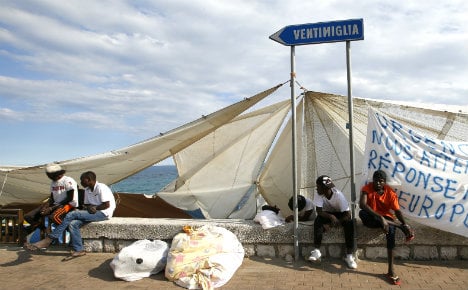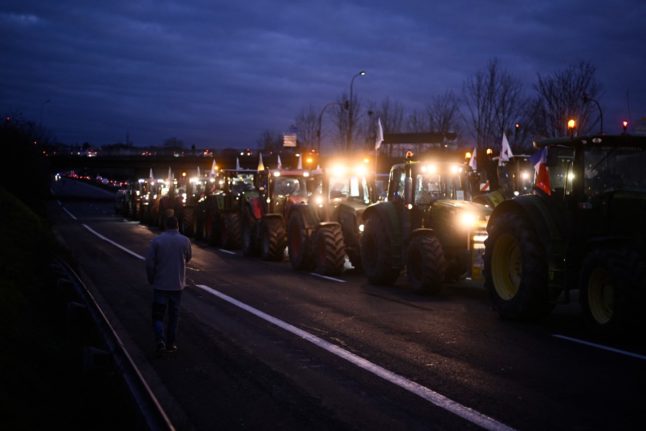More than 300 people arrived in the Ligurian town after making their way up from southern Italy after a week that saw 13,000 rescued at sea.
The spike comes a year after Italy and France became embroiled in a standoff after hundreds of migrants were stranded in Ventimiglia because they were refused entry into France.
With the border still being stringently monitored, just 20 of the 300 migrants who arrived in Ventimiglia have attempted to cross, with the majority now housed in the town’s main refugee centre, run by the parish church of San Antonio, where numbers have swelled to over 600.
“The situation has become unsustainable,” parish priest Father Rito Alvarez told San Remo news.
Volunteers at the centre are now preparing 700 meals a day.
“We're trying to welcome everyone, but there are so many and the number keeps growing,” Maurizio Marma, a volunteer from Caritias, the church-run charity, told Ansa.
“Many of them are now sleeping on the floor outside; we are looking for another solution.”
The problems are not just logistical. The spike in arrivals is also creating a headache for guards at the French border.
Although the majority of the arrivals have been identified in Italy and therefore must stay, some have been caught trying to cross the border into France, with a reported 20 migrants being removed from France-bound trains on Monday morning alone.
The sudden influx has also caused sanitation problems inside the refugee centre.
An outbreak of chickenpox last week saw four refugees hospitalized and a further 80 given vaccinations against the disease.
Ventimiglia Mayor Enrico Ioculano is set to meet with religious leaders on Monday in the hope that more Church structures can be freed up for use as welcome centres.
In June last year around 250 migrants camped out in Ventimiglia for four days, protesting that they should be allowed to enter France on their way to their desired destinations in northern Europe.
Italy’s Interior Minister Angelino Alfano described the dramatic scenes as “a punch in the face of all European countries that want to close their eyes”. The migrants were eventually forcibly moved.

Migrants in Ventimiglia last June. Photo: Valery Hache/AFP



 Please whitelist us to continue reading.
Please whitelist us to continue reading.